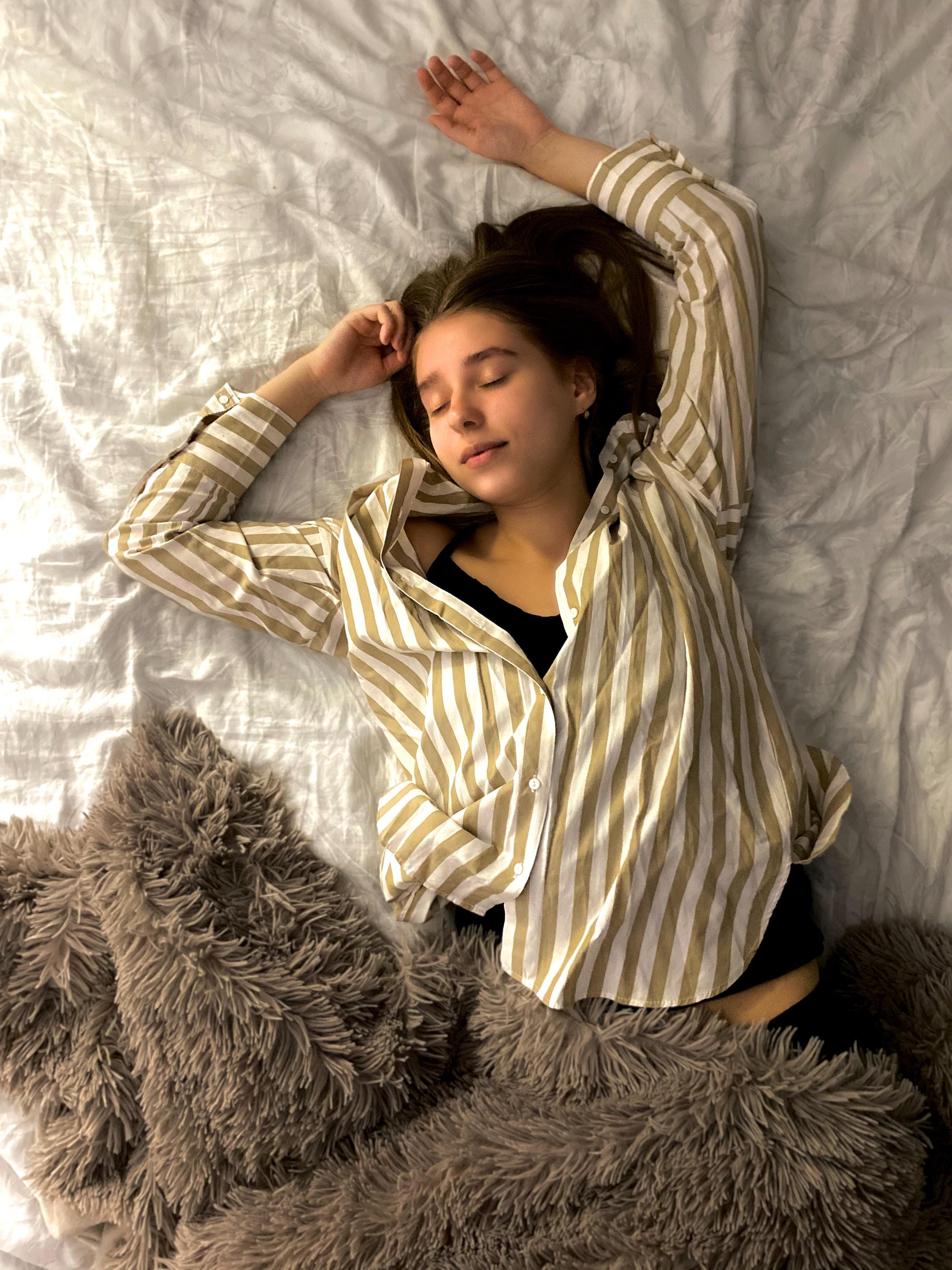
Did you know that sleep quality is linked to mental health? Sleeping well is essential for both physical and mental health. Poor sleep can lead to anxiety and depression, and depression can then, in turn, disrupt your sleep. There’s a strong link between lifestyle, sleep, and mental health. Changing some of your habits may help you get a good night’s sleep, ease depression, and improve your overall mental health. Here’s how.
Stick to a sleep schedule
Going to bed and waking up at the same time every day, even on weekends, helps regulate your body clock. A regular sleep schedule helps your body know when it’s time to sleep and when it’s time to wake up. Try setting a bedtime and wake-up time that you can stick to. It might take some time to get used to, but eventually, your body will get in sync with this routine, and you’ll find it easier to fall asleep and wake up refreshed.
Be mindful of what you eat
What you eat and drink can affect your sleep. Avoid caffeine, nicotine, and alcohol, especially in the hours leading up to bedtime. Caffeine can stay in your system for up to 12 hours and interfere with sleep. Alcohol may help you fall asleep, but it can cause you to wake up frequently throughout the night. It’s also important to avoid large or heavy meals before bed. Instead, try to eat a light dinner at least 2-3 hours before bedtime.
Get moving
Regular exercise can help boost your mood and improve your sleep. Exercise doesn’t mean you have to hit the gym or run a marathon- simply going for a walk, washing the car, doing yoga, or practicing tai chi can be beneficial. Exercise helps relieve tension and stress, which can disrupt sleep. The best time to exercise is usually in the morning or afternoon. Rigorous exercise can increase your heart rate and make you feel more alert, so avoid exercising too close to bedtime.
Unwind before bed
Create a relaxing bedtime routine to help you unwind and signal to your body that it’s time to calm down. This might include taking a warm bath, reading a book, practicing relaxation techniques, or listening to soothing music. Dim the lights and avoid bright screens like your phone or television in the hours before bed. The blue light from screens can interfere with your body’s production of melatonin, a hormone that regulates sleep.
Seek professional help, if needed
If you’re having trouble sleeping or experiencing symptoms of depression, anxiety, or another mental health issue, don’t hesitate to seek professional help. A mental health professional can provide guidance, support, and treatment that can help improve your sleep and overall mental health.
Your day and nighttime habits can have a significant impact on your mental health. Good sleep hygiene, including a regular sleep schedule, mindful eating, regular exercise, and a relaxing bedtime routine, can help improve sleep quality, ease depression and anxiety symptoms, and support overall mental health. By making small lifestyle changes, you can improve your sleep, support your mental health, and enjoy a happier, healthier life. Remember, don't hesitate to reach out to a mental health professional if you're struggling with depression that is affecting your sleep.
Trust Bella Jace Center for Health for tailored depression treatment without the use of medication. The diligent professionals at Bella Jace are well-versed in the science behind mood disorders and are committed to providing patients with personalized treatments that can drastically improve their mental health holistically, without needing medication. Ultimately, Bella Jace focuses on creating an individual treatment plan that not only bring relief from depression but empower individuals to regain control of their emotional well-being. If you’re looking for an approach to managing your depression without medication, reach out to the knowledgeable and supportive experts at Bella Jace today.